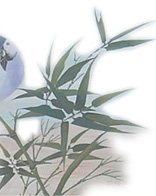|
 Listen to Shirley Singing the Poem in Chinese Feb 4, 2013 Listen to Shirley Singing the Poem in Chinese Feb 4, 2013
 Listen to Shirley Singing the Poem in English Feb 4, 2013 Listen to Shirley Singing the Poem in English Feb 4, 2013
 Listen to Shirley Singing the Poem in English Nov 18, 2007 Listen to Shirley Singing the Poem in English Nov 18, 2007
 Listen to Shirley Singing the Poem in Chinese Nov 18, 2007 Listen to Shirley Singing the Poem in Chinese Nov 18, 2007
 Listen to Shirley Explaining the Lyric & Follow Shirley to Read It Listen to Shirley Explaining the Lyric & Follow Shirley to Read It
 Learn the Meaning of the Poem with Shirley Together Learn the Meaning of the Poem with Shirley Together
 See Shirley's Painting for the Lyric Feb 3, 2013 See Shirley's Painting for the Lyric Feb 3, 2013
 See Shirley's Painting for the Lyric Jan 5, 2012 See Shirley's Painting for the Lyric Jan 5, 2012
 See Shirley Created Picture for the Lyric July 19, 2008 See Shirley Created Picture for the Lyric July 19, 2008
 When you see the title of this lyric poem Xiang Jian Huan - Joy at Meeting by Li Yu ( 937 - 978). Maybe you would like think this is a happy lyric. In fact, it expresses a sad feeling of the last and captive emperor before the Song Dynasty (960 - 1279). When you see the title of this lyric poem Xiang Jian Huan - Joy at Meeting by Li Yu ( 937 - 978). Maybe you would like think this is a happy lyric. In fact, it expresses a sad feeling of the last and captive emperor before the Song Dynasty (960 - 1279).
The original ancient Chinese poems and lyrics could be sung, but for the time is too long, the music parts of the poems and lyrics have been lost.
The title Xiang Jian Huan - Joy at Meeting is just the name of the tune to which ci я╝ИLyricя╝Й poem was composed, it is called Ci Pai.
Ci Pai stipulates the form and regulation of a Chinese lyric poetry, for example, how many words in a lyric, how many lines, what are the tones and the rhymes and so on in the lyric.
There are more than 1000 Ci Pai and tunes of the Chinese lyric poems.
Many of them originally related to the content when they were created at the first time, along with the time, the relationship between the original name of the Ci Pai and the content has gotten loose and loose, and even no any relationship at all. Just use the tune to compose and write.
The meaning of this lyric and its name of the tune has no any relationship at all. The meaning of the title of the Ci Pai and the content is in fact opposite.
It is famous for it has expressed the sorrow feeling of parting of a former and captive emperor with a very high language skill.
As the last ruler of the Southern Tang, Li Yu was on the position of emperor for 15 years. In 975, his capital -- Jinling (todayтАЩs Nanjing) was occupied by the army of the Song Dynasty and he himself was captive and be poisoned in 978.
He was a bad monarch but a great artist of lyric poetry and painting.
After he lost his country and became a captive, he created his best lyrics which represent the highest achievement of the lyric poets of that period. His lyric poetryтАЩs language clean and clear, feeling was sad and direct, broke through his timesтАЩ general style and push the lyrics to be developed forward.
This is one of the best lyrics describing the sorrow of separation, loneliness and a complex feeling.
 The most famous lines of the lyric "Jian Bu Duan, Li Hai Luo, Shi Li Chou -- Cannot be cut to sever, Cannot be combed clear, It is the grief of parting. " -- Express the nonfigurative human feeling with a very visual language. Until now, it has been very famous and popular in Chinese language. :-) The most famous lines of the lyric "Jian Bu Duan, Li Hai Luo, Shi Li Chou -- Cannot be cut to sever, Cannot be combed clear, It is the grief of parting. " -- Express the nonfigurative human feeling with a very visual language. Until now, it has been very famous and popular in Chinese language. :-)
I have created a piece of music to match it and sang it in English and Chinese in 2007. Created or painted 3 paintings in 2008, 2010 and 2012 to match the music and lyric.
This week, I re-painted the 4th painting and re-record the singings.
I do wish that my effort will be some help of you to learn Chinese culture and language.
Main Meaning of the Lyric
Silently, I climb the west tower alone,
To see the moon like hook.
A lonesome phoenix tree in the deep yard
Has been locked in the autumn.
CanтАЩt be cut to sever,
CanтАЩt be combed clear,
It is the grief of parting.
Another unspeakable taste is in my heart.
Attaching: Translation by 100 Tang & Song C/Poems by Xu Yuanchong:
Silent, I climb the Western Tower alone,
And see the hook-like moon.
Parasol-trees lonesome and drear
Lock in the courtyard autumn clear.
Cut, it wonтАЩt sever,
Be ruled, тАЩtwill never.
What sorrow тАЩtis to part!
ItтАЩs an unspeakable taste in the heart.
Chinese Characters & Pronunciations:
You can click on any Chinese Character to open the New Character Board and to see its Chinese pinyin, meaning, pronunciation and follow me to read it, you can also click the links over to enter the Painting Column,or you can directly enter the art notes on the painting that I created for this poem to see my painting and art notes for the poem
чЫ╕шзБцмв
цЭОчЕЬ я╝ИхНЧхФРя╝Й
цЧа шиА чЛм ф╕К ше┐це╝я╝М
цЬИхжВщТйуАВ
хпВхпЮцвзцбРц╖▒щЩвщФБц╕ЕчзЛуАВ
хЙкф╕НцЦня╝М
чРЖ ш┐Ш ф╣▒я╝М
цШпчж╗цДБуАВ
хИлцШпф╕АчХкц╗ЛхС│ хЬих┐Гхд┤уАВ
 If you have any questions, comments and suggestions, please write to shirley@ebridge.cn . You are welcome to publish your opinions in Message Board as well. If you have any questions, comments and suggestions, please write to shirley@ebridge.cn . You are welcome to publish your opinions in Message Board as well.
Shirley Zhang
ShirleyFeb 5, 2013/June 6, 2010/Sun, Nov 18, 2007
|

